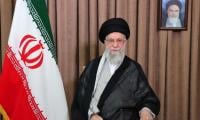The paradox of development
“Tribalism, favouritism, nepotism and opportunism are the notions that shape the culture of the development sector in Pakistan today”. Ironically, this gloomy depiction of the development sector has not come from critics, but from a few whistleblowers who think that the sector is marred by a lack of transparency and accountability.
Some senior development professionals have recently approached the Writers’ Forum of Development Journalists with ample evidence of the excruciating state of affairs at NGOs. This merits an open debate in public forums in the larger interest of the poor in Pakistan. While the continued miseries of the poor cannot be entirely attributed to NGOs, the validity of the claims of poverty alleviation programmes still need to be assessed critically.
The government of Pakistan invested more than $1 billion during the last two decades from the soft loans of the World Bank alone for multi-sectoral poverty alleviation programmes. There has not been any tangible impact on poverty and there are no evidence-based ex post independent studies to establish the value for money. The grant-based poverty alleviation programmes became superfluous in many instances, with overlapping, double-dipping and the over-concentration of resources with patchy outcomes against the predefined development objectives.
The disenchantment with the role of NGOs to address the needs of the poor – revealed through the accounts of whistleblowers – must be investigated thoroughly. It must be mandatory that poverty alleviation programmes are granted based on an ex-ante analysis of the likelihood of the long-term impact, organisational efficiency and the efficacy of the grantee. There must be independent intraorganisational accountability checks to ensure that robust systems that are put in place and there is a performance-based and result-driven organisational culture.
The income disparity within the organisation must be minimal, with periodical external audits and the monitoring of the results against the objectives of these programmes. The investigation must go beyond large-scale programmes to charity-driven foundations whose senior executives exercise unlimited powers in the induction of incompetent and docile staff to avoid performance-based accountability.
The perks, privileges and authority enjoyed by these senior executives of NGOs and various foundations are evident from a growing income disparities within these organisations. The rapid staff turnover, short-term exploitative contracts and the violation of all 39 conventions of labour laws of which Pakistan is a signatory must be investigated. Staff turnover, terminations, forced resignations and the violation of labour laws remains particularly high at NGOs, followed by unregulated private businesses. There is a ludicrous plea in NGOs and charity-based foundations that labour laws are applicable to the corporate sector only. This is a misleading interpretation of labour laws in Pakistan.
An entity providing employment for two or more than two people must abide by labour laws and universally accepted provisions of workplace dignity. The competent professionals who are left with whistle-blowing within the development sector have a huge price to pay. The sector is replete with instances of termination, forced resignation and the de-incentivising of employment for questioning the discretionary powers of bosses and the lack of fair play and equity in the allocation of roles and responsibilities. Some charity foundations have become safe havens for tax evasion and money laundering by rich families, which also helps them build social and political clout to influence the power corridors for undue business concessions.
It is, therefore, vital for the civil society to first liberate itself from this unbecoming business of exploitation to help liberate the poor that it claims to serve. The torchbearers of the transformative civil society must come forward to contest the incivility within civil society. The civil society has to regain trust as a vibrant, transparent and accountable platform of civic engagement and a space to protect the interests of citizens.
In order for the civil society to perform its historical role to bring about a socioeconomic transformation, it must demonstrate the ability, will and commitment to promote and uphold the values of participation, inclusiveness, transparency, accountability and effective governance. The civil society must provide a platform of choice for the marginalised segments of society to articulate development priorities and to broaden economic choices to combat poverty. The civil society must be liberated from elite capture to create a space for a majority of poor people in this country whose poverty has been exploited by the self-proclaimed development gurus in this country.
In the past, accountability drives were confined to public sector institutions – and that too on political grounds. In Pakistan, NGOs shape the discourse and politics of development and all notions of the civil society are reduced to a set of managerial and technical issues. Transformative leadership, the hallmark of societal change, does not find much space in the discourse and activities of NGOs, which are essentially dominated by mediocrity.
The elite capture of NGOs is the real challenge because those who are assigned to manage most of leading development entities in Pakistan have neither experiential knowledge of poverty nor any conviction of socioeconomic transformation beyond their lucrative jobs. In recent years, NGOs have lost their public legitimacy primarily because of their consistent disconnect with the real world of oppression and poverty.
In Pakistan, the development sector has never been brought under public scrutiny in the past due to a flawed regulatory mechanism; the limited capacity of regulatory authorities; and a complicit approach of successive governments towards NGOs. The development sector could also evade accountability because it remained subservient to an authoritarian state. Docility and conformism shapes the political landscape of a foreign-funded civil society in Pakistan where the poor could not relate to an exotic development agenda.
One of the main paradoxes of the development sector is that it has resulted in the upward economic mobility of development professionals and a perpetual state of poverty among the recipients of development aid. It is time to initiate a public debate to unpack the mysterious world of development and devise regulations for an scrutiny and accountability of how public money is being used in the name of ‘social development’.
There has always been a relationship of quid pro quo between NGOs and the government where the former have lost the essence of civic engagement against an oppressive state. Governments have treated NGOs as extension services to reduce the burden of the government in the provision of basic services. There has been a tacit approval for state coercion from NGOs as well so long as it doesn’t affect the smooth functioning of these entities.
Ironically, most of the large-scale development programmes and leading NGOs could flourish under the dictatorial regimes in Pakistan. These NGOs functioned as the ideological allies of a neoliberal economic model which gave legitimacy to liberalisation policies. Structural adjustment programmes and poverty reduction strategy papers were the theoretical lynchpins of large-scale poverty alleviation programmes in Pakistan. The thoughtless neoliberal economic growth models brought economic catastrophes to an ailing national economy.
Therefore, this is not only about the incompetence, lack of accountability and organisational structure of NGOs, but also the theoretical and ideological edifice that must be critically assessed for reforming the civil society in Pakistan. It is also vital to broaden the definition of the civil society by including all platforms of civic engagement, including voluntary organisations, bar associations, press clubs, transformative and alternative political voices, human rights groups, cultural associations and all those social arrangements that provide a space for the individual and collective expression of citizens.
We can only hope that the enlightened civil society activists, legal fraternity, journalists and human rights activists will come forward to join hands for the accountability drive of the Writers’ Forum.
The writer is a freelance columnist based in Islamabad.
Email: ahnihal@yahoo.com
-
 Shia LaBeouf Arrested Again In New Orleans On Additional Battery Charge
Shia LaBeouf Arrested Again In New Orleans On Additional Battery Charge -
 Shamed Andrew Upset With THIS Family Member Over Current Condition
Shamed Andrew Upset With THIS Family Member Over Current Condition -
 Michael Jackson Estate Sued With Allegations Of Years Of Abuse From Late Singer
Michael Jackson Estate Sued With Allegations Of Years Of Abuse From Late Singer -
 Meghan Markle Shows ‘real Pain’ With Her Body Language In Jordan
Meghan Markle Shows ‘real Pain’ With Her Body Language In Jordan -
 Jennifer Garner Names Her Movie That She Hasn't Seen In Full Since Its Premiere
Jennifer Garner Names Her Movie That She Hasn't Seen In Full Since Its Premiere -
 Bridgerton’s Michelle Mao On Facing Backlash As Season Four Antagonist
Bridgerton’s Michelle Mao On Facing Backlash As Season Four Antagonist -
 King Charles Gets New ‘secret Weapon’ After Andrew Messes Up
King Charles Gets New ‘secret Weapon’ After Andrew Messes Up -
 Shia LaBeouf Makes Bold Claim About Homosexuals In First Interview After Mardi Gras Arrest
Shia LaBeouf Makes Bold Claim About Homosexuals In First Interview After Mardi Gras Arrest -
 Princess Beatrice, Eugenie ‘strained’ As They Are ‘not Turning Back’ On Andrew
Princess Beatrice, Eugenie ‘strained’ As They Are ‘not Turning Back’ On Andrew -
 Benny Blanco Addresses ‘dirty Feet’ Backlash After Podcast Moment Sparks Online Frenzy
Benny Blanco Addresses ‘dirty Feet’ Backlash After Podcast Moment Sparks Online Frenzy -
 Sarah Ferguson Unusual Trait That Confused Royal Expert
Sarah Ferguson Unusual Trait That Confused Royal Expert -
 Prince William, Kate Middleton Left Sarah Ferguson Feeling 'worthless'
Prince William, Kate Middleton Left Sarah Ferguson Feeling 'worthless' -
 Ben Affleck Focused On 'real Prize,' Stability After Jennifer Garner Speaks About Co Parenting Mechanics
Ben Affleck Focused On 'real Prize,' Stability After Jennifer Garner Speaks About Co Parenting Mechanics -
 Luke Grimes Reveals Hilarious Reason His Baby Can't Stop Laughing At Him
Luke Grimes Reveals Hilarious Reason His Baby Can't Stop Laughing At Him -
 Why Kate Middleton, Prince William Opt For ‘show Stopping Style’
Why Kate Middleton, Prince William Opt For ‘show Stopping Style’ -
 Here's Why Leonardo DiCaprio Will Not Attend This Year's 'Actors Award' Despite Major Nomination
Here's Why Leonardo DiCaprio Will Not Attend This Year's 'Actors Award' Despite Major Nomination



